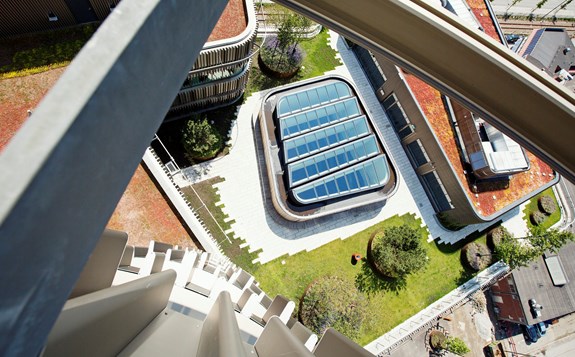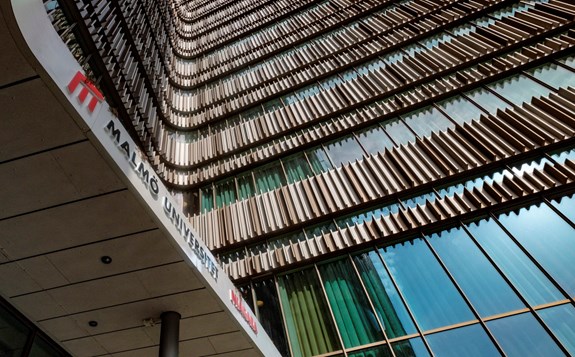We use cookies on this website. Cookies help us deliver the best experience on our website. Read about cookies.
-
- Education
- Education
- Programmes and courses
- Applications and admissions
- Tuition fees
- Scholarships
- Exchange studies at Malmö University
- Study Guidance
-
- After admission
- After admission
- Moving to Malmö
- Pre-orientation
- Arrival guide
-
- About studies at Malmö University
- About studies at Malmö University
- Why choose Malmö University
- Understanding university studies
- Connect with our students
On the page -
- Research
- Research
-
- Doctoral studies
- Doctoral studies
- Doctoral courses
-
- Doctoral schools
- Doctoral schools
- Adaptation of urban space through sustainable regeneration
- ComBine
- Culturally Empowering Education through Language and Literature
- Education, Learning and Globalisation
- Finding ways in a time of great future challenges (FinnFram)
- Swedish National Graduate School in Science and Technology Education Research
- Learning in Multicultural Societal Contexts
- Pedagogy and Vocational Skills
- Relevancing Mathematics and Science Education (RelMaS)
- Sustainable Movement Education
- The National Research School for Professionals in Social Services
- Research subjects
-
- Research centres
- Research centres
- Biofilms Research Centre for Biointerfaces
- Citizen Health
- Imagining and Co-Creating Futures
- Institute for Urban Research
- Malmö Institute for Migration Studies
- Literacy and Inclusive Teaching
- Centre for Work Life Studies
- Sustainable Digitalisation Research Centre
- Centre for Sexology and Sexuality Studies
-
- Research publications
- Research publications
- Search for research publications in Diva
- Malmö University Press
- Research events
- Participate in a research study
- Coffee Break Quiz
On the page -
- Collaboration and Innovation
- Collaboration and Innovation
-
- Levels of collaboration
- Levels of collaboration
-
- Local collaboration
- Local collaboration
- Muvah
- Regional collaboration
- National collaboration
- International collaboration
- Innovation
- Collaboration with students
-
- Collaborate with researchers
- Collaborate with researchers
- Labs and facilities
- Culture collaboration
- Support Malmö University
- Alumni & Friends
On the page -
- About us
- About us
-
- Faculties and departments
- Faculties and departments
-
- Faculty of Culture and Society
- Faculty of Culture and Society
- Department of Global Political Studies
- School of Arts and Communication
- Department of Urban Studies
-
- Faculty of Education and Society
- Faculty of Education and Society
- Department of Childhood, Education and Society
- Department of Sports Sciences
- Department of Culture, Languages and Media
- Department of Natural Science, Mathematics and Society
- Department of Society, Culture and Identity
- Department of School Development and Leadership
- The Centre for Teaching and Learning (CAKL)
-
- Faculty of Technology and Society
- Faculty of Technology and Society
- Department of Computer Science and Media Technology
- Department of Materials Science and Applied Mathematics
- Faculty of Odontology
- University Dental Clinic
-
- Find and contact Malmö University
- Find and contact Malmö University
- Visit Malmö University
-
- News and press
- News and press
- Graphic manual
- Map of the buildings (Google Maps)
- Merchandise
- Supplier information and invoice management
- Whistleblowing
- We will help you with your questions
- Management and decision-making paths
-
- Malmö University's strategy 2030
- Malmö University's strategy 2030
- Sustainability
- Widened recruitment and participation
- Quality assurance work at the University
-
- Malmö Academic Choir and Orchestra
- Malmö Academic Choir and Orchestra
- Student work – video pieces
-
- Annual Academic Celebration
- Annual Academic Celebration
- Academic traditions
- Meet our new professors
- Meet our new doctors
- Honorary doctors
-
- The University in a troubled world
- The University in a troubled world
- Campus total defence
On the page
Nordic Urban Planning Studies, Master's Programme (Two-Year)
two-year master's programme
What is a city and who are the key actors in urban development? How do cultural, political and economic conditions define urban life? How can we develop innovative, collaborative and sustainable approaches to urban challenges and possibilities? This programme studies Nordic urban planning in a global context and its distinctive perspectives to urban sustainability, liveability, mobility, ‘smart’ cities, welfare, citizen empowerment and more. The programme is offered by Roskilde University in collaboration with Malmö University and UiT The Arctic University of Norway.
About the programme
The programme combines core training across the three universities with opportunities to specialise at each. Recognising that sustainable solutions for major future challenges cannot be solved with one professionalism alone, the programme takes an interdisciplinary approach that equips you to solve real-life complex problems through group and individual research projects. Taught by leading researchers from the universities of Roskilde (Denmark), Malmö (Sweden) and Tromsø (Norway), you will develop international and interdisciplinary perspectives on urban planning and development.
You will also gain expertise in a range of research and communicative skills suitable for employment in private or public organisations working with cities and their futures.
Distinctive features of the programme include:
- drawing on the distinctive research and teaching strengths of the three universities, while allowing immersion in a wide range of cities and planning cases;
- developing skills in working collaboratively and imaginatively with other students as well as with diverse communities, organisations, companies and municipalities;
- offering flexibility by combining core training with opportunities to specialise, including in terms of where to research your thesis;
- providing training in appropriate theories and qualitative methods as well as techniques of spatial visualisation and geographical information systems, including through a field course on Arctic cities and their planning; and
- emphasising creative and experimental methods as well as problem-oriented project work for addressing planning issues.
Endorsed by The Nordic Council of Ministers, Rambøll, Siemens, Cowi, Niras, Realise and BIG.
Nordic Urban Planning qualifies you for a wide range of job opportunities. Graduates will be attractive for businesses, public authorities and organisations working nationally and internationally with cities, regions and urban life. Potential job opportunities include:
- project leaders and entrepreneurs in urban consultancies;
- managers, facilitators and coordinators of city development in international planning, design and consultancy companies;
- urban planners and social innovators for international organizations and NGOs;
- urban planners for local, regional and national public authorities and municipalities;
- advisory positions in public and private sectors working to build urban futures;
- research positions, including within universities (providing a strong basis for PhD studies).
Structure of the programme
First semester
The first semester is a core introduction at Roskilde University. Thereafter students may choose between the semester tracks below. There is a requirement to be mobile for at least one semester (30 ECTS) during the first three semesters, i.e. students must attend at least two universities during that period and they have the opportunity to attend all three.
Content semester 1 (Roskilde University)
- Approaches to Urban Planning, 5 credits
- Critical Urban Studies, 5 credits
- Liveable Cities, 5 credits
- Project: Urban Planning in a Welfare Context, 15 credits
The objective of the semester is to equip students with critical insight into and understanding of urban planning, conditions, challenges and strategies. The semester introduces students to economic, political, social and cultural conditions for urban planning, and provides them with knowledge and understanding of the economies of urban development and planning projects. The semester also provides a research-based introduction to planning theories and paradigms.
The teaching is based on translating and exemplifying theoretical knowledge and understanding through concrete cases, including through guest lectures by key private and public actors that illustrate planning in practice. The theme of the project work is the economic, political and social conditions for planning where work is done on selected planning and urban development issues in a welfare state context.
Second semester
Content semester 2 (two alternatives (choose one of the alternatives))
EITHER: Specialisation at Roskilde University: Mobility and Globalizing Cities
- Cities, Culture and Politics, 5 credits
- Methods in Community Planning, 5 credits
- GIS and Visualisation, 5 credits
- Project: Mobilities and Globalizing Cities, 15 credits
The objective of this track is to provide students with in-depth knowledge and understanding of how globalization and its mobilities create and transform cities and urban areas, as well as with understanding of some of the tools that can be used to map and analyse cities and development projects. In this semester, particular attention is given to issues that include citizenship, cultural identity, governance, new challenges for global cities, and planning related to cosmopolitan urbanism at local, national and global scales. In addition, there is consideration of the challenges for addressing urban development and welfare in an interconnected world.
During the semester, the aim is for students to acquaint themselves with participatory and qualitative planning methods, including forms of action research, ethnography and creative methods, as well as to gain experience in using geographical information systems and techniques of visualization. The semester equips students with the competences to undertake holistic planning analyses and action plans as well as competences to work with innovation, future cities and project management related to urban issues.
OR: Specialisation at Malmö University: Social Sustainable Planning
- US630E Urban Studies: Catching Urbanity, 15 credits
- US640E Project: Making Urban Studies, 15 credits
The objective of this track is for students to develop their knowledge and understanding methodologically and theoretically in relation to contemporary urban challenges and in relation to questions of inclusion, exclusion, segregation, empowerment, participation, migration and inequality. Students develop their proficiency in identifying and communicating urban contexts and engaging in dialogue with urban development actors. Students develop their ability through specialisation to be able to relate independently to current research in the main subject areas of urban studies. Students can make use of the city of Malmö in their work on social sustainability, where various urban actors have developed ideas on social investments, social budgeting and their work with the Commission for Social Sustainability in Malmö.
Third semester
The third semester includes more practice-orientated perspectives with the aim of providing students with (further) understanding of and experience in practical planning and methods related to urban development. The semester overall strengthens the students' abilities to integrate theoretical understanding and analytical tools in order to study and work with urban development processes in different international contexts, and provides insights into modes of cooperation between public authorities and private actors on various scales. It further advances the students' abilities to reflect independently on different aspects of urban development in terms of their impact on, for example, everyday life and intercultural environment. Students should choose one of the following tracks.
Content semester 3 (two alternatives (choose one of the alternatives))
EITHER: Specialisation at UIT The Arctic University of Norway: Planning and Culture in the Urban North - Comparative Perspectives
- Arctic Cities Field Course, 20 credits
- Culture, Politics and Planning, 10 credits
This track allows students to study urban challenges, opportunities and planning practices of Arctic cities in a global context. It also develops skills and experience in methodology, in explorative fieldwork methods and in the use of geographical information systems (GIS) for addressing ongoing planning processes and issues. The Arctic Cities Field Course integrates theoretical understanding and reflection on regional development with analytical methods and tools. Through a course on Culture, Politics and Planning, students also explore urban development and geopolitics in the North in relation to macro trends in the Global South in terms of climate change, migration to cities, generational and economic inequities, privatization and securitization of city spaces, before zooming in on specific urban cases.
OR: Specialisation at Roskilde University: Planning in Practice
- Project OR Internship, 20 credits
- Urban Project Management, 5 credits
- Ethnography and Visualisation for Planning Practice, 5 credits
This track provides students with an opportunity to develop their interests and skills in urban planning and urban development. The extended project or internship lets students focus on urban planning in practice. It is alternatively possible to choose a Live Cases project (15 credits), and an approved elective course (5 credits). Through engaging with current cases from an integrated perspective, Urban Project Management develops abilities to analyse, reflect on and inform aspects of the management for sustainable urban development. Based on collaborating with an organisation or company, Ethnography and Visualisation for Planning Practice involves learning how to conduct consultancy work and specifically fieldwork to inform planning. It also develops communication skills.
Fourth semester
Content semester 4
Master Thesis at Roskilde University, Malmö University or UIT The Arctic University of Norway.
- Master Thesis in Nordic Urban Planning Studies, 30 credits
The master thesis is written in the teaching and examination language of the subject. For this programme the teaching and examination language is English. The thesis work is carried out individually or in groups, according to the regulations that apply at the relevant university. The master thesis work usually completes the programme.
Master Thesis offered by Malmö University:
Syllabus
Apply directly to Roskilde University
Application deadline for non-EU/EEA students is January 15 and March 1 for EU/EEA students.
About the universities
Roskilde University
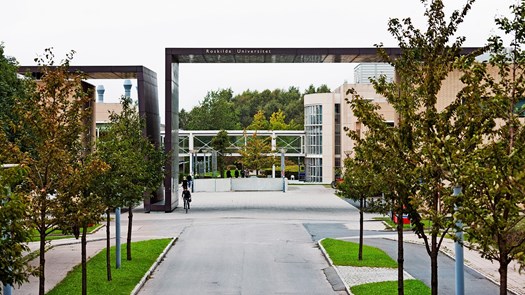
Roskilde University
Roskilde University's primary objective is to contribute to experimental, innovative forms of research, learning and problem-solving that contribute to society's development.
Malmö University
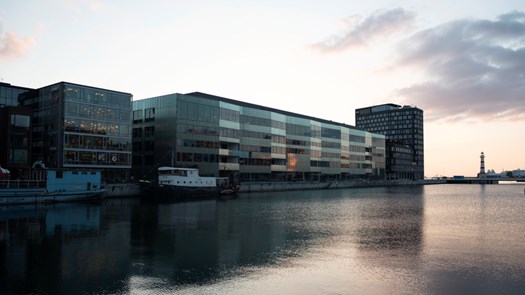
Malmö University
At Malmö University, research and education should be innovative, multidisciplinary, international, and safeguard the strengths and values that characterise the University.
UiT The Arctic University of Norway
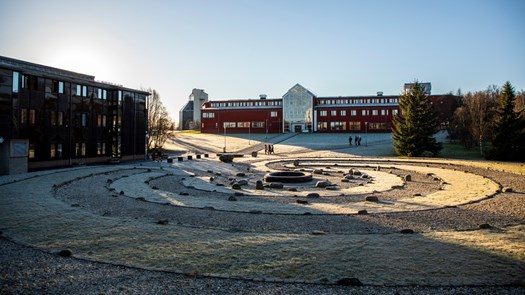
UiT The Arctic University of Norway
At UiT The Arctic University of Norway you can explore global issues from a close-up perspective. UiT contributes to knowledge-based development at the regional, national and international level.
Admission requirements
Admission requirements can be found on the Roskilde University web page where you also apply to the programme.



